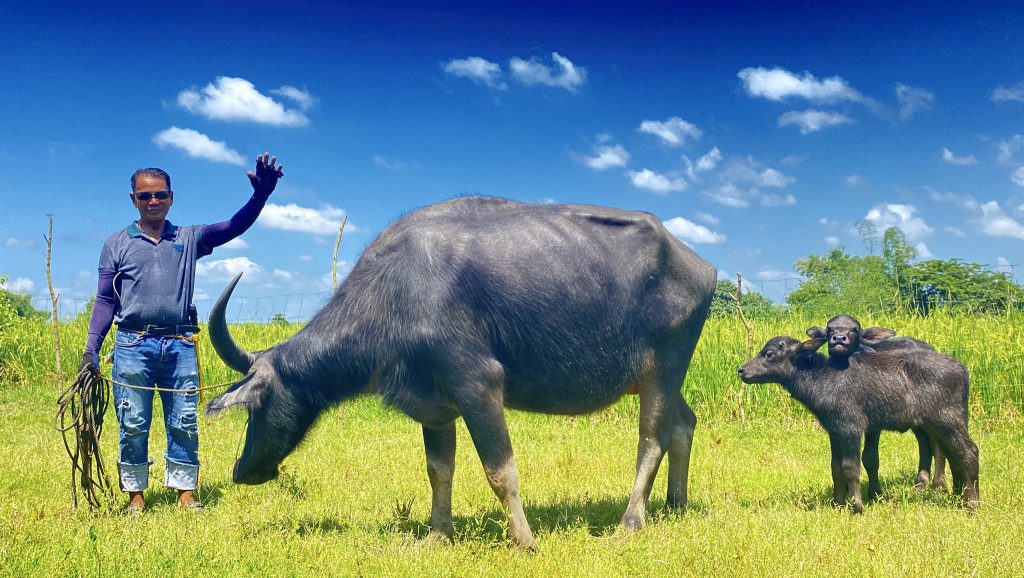Artificial insemination (AI) technology recently played a pivotal role in the birth of twin male and female calves in Barangay Laoang, Tarlac City, Tarlac.
This remarkable achievement can be attributed to Jaime Bacsa Jr., a dairy farmer who, in addition to his previous career as a cook, currently serves as the Councilor of the barangay.
On September 16, 2023, the barangay witnessed the birth of its first set of twin calves, a historic moment made possible through AI. Bacsa’s journey in the world of farming traces back to the 1980s and 1990s when carabaos were primarily valued for their draft power. During that time, he sustained his livelihood by buying and selling carabaos, a venture that allowed him to support his children through college and witness them earning professional degrees. Upon retiring from his cooking profession, he returned to caring for carabaos, finding happiness and a source of income in these magnificent creatures.
Bacsa’s elation and pride are immeasurable as Dr. Noel Soliman, the city veterinarian, introduces his first set of twin calves, which are yet to be named. They were produced through AI by the DA-PCC at CLSU. Prior to the birth of these twins, Bacsa had already experienced success with AI when a female calf was born through the same method.
Last year, when the DA-PCC at CLSU AI team visited the barangay to promote the AI program, Bacsa eagerly embraced the opportunity, despite some of his neighbors preferring natural mating for their animals. Initially, only a few farmers joined the program. However, months later, those who participated saw positive results as their buffaloes successfully conceived through AI, with Bacsa’s twins being a prime example.
This experience solidified Bacsa’s belief in the saying “seeing is believing.” He expressed his sincere gratitude to the DA-PCC at CLSU AI team, particularly to Francis “Anchet” Adriano, the AI technician responsible for the birth of his twin calves.
Research has shown that calves can be categorized as either monozygous or dizygous, and they may share the same sex or have different sexes. In cases where twins of opposite sexes are born, a condition known as freemartinism occurs in 90 to 97% of pregnancies, leading to sterility in the female calf.
Understanding the advantages and challenges of having twin calves of opposite sexes, Bacsa remains undeterred and committed to supporting and promoting the AI program. He has ambitious plans to expand his carabao population and embark on milk production in the near future, further contributing to the development of his community.

